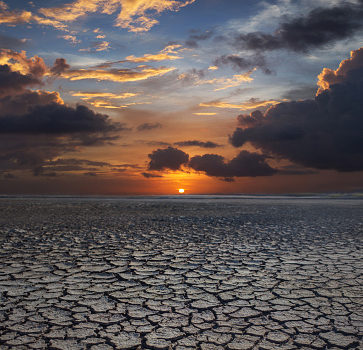 Last year, I attended my 50th reunion at Amherst College. One evening at dinner under a tent, a former roommate, “Nick,” dominated the conversation with assertions that claims about human-induced climate change were a hoax and those about global warming a fraud. At first, I thought he was trying to be entertaining—or provocative. After a while, I realized my error. His was no parlor game; nor was he merely pushing his dinner partners by challenging the basis for their own strongly held convictions. He was a climate-change denier and a true believer when it came to denialism.
Last year, I attended my 50th reunion at Amherst College. One evening at dinner under a tent, a former roommate, “Nick,” dominated the conversation with assertions that claims about human-induced climate change were a hoax and those about global warming a fraud. At first, I thought he was trying to be entertaining—or provocative. After a while, I realized my error. His was no parlor game; nor was he merely pushing his dinner partners by challenging the basis for their own strongly held convictions. He was a climate-change denier and a true believer when it came to denialism.
Since that dinner, I have wondered: How could an Amherst graduate arrive at these conclusions in the face of overwhelming evidence and scientific consensus? Similar questions could be asked of graduates from colleges and universities across the nation. Had the lessons of rigorous thinking, widespread reading, respect for evidence and trustworthy sources been lost on Nick? He had been, as I recalled, a brilliant student. So the answer was not, simply, that a college education had failed somehow to “take.”
On the contrary. He had fully internalized the critical thinking skills at a premium in his college days, but placed them now in the service of climate-change denialism. His lengthy enumeration of purported holes in the evidence was skillful. Indeed, it was strongly reminiscent of Big Tobacco’s methodological arguments in the highly orchestrated, sophisticated and clever campaign to fend off and postpone the inevitable declaration of tobacco as a carcinogen. Nick was more a product of his regional background—in a hotbed of skepticism about human-induced climate change—than a product of Amherst. He was more a member of that region’s upper-class—its social networks, media preferences and economic interests—than of the Amherst class of ’66.
A higher education—what our college and university students learn both inside and beyond their classrooms—emerges as one of multiple influences but maybe not the most important one. A striking example of this hierarchy of influences emerges in a series of voting studies conducted in the aftermath of the Vietnam War. Not very long after the war’s conclusion, sociologist Seymour Martin Lipset and political scientist Everett Carll Ladd Jr. produced a small avalanche of studies examining the voting patterns and preferences of 1960s college students. Within a decade, the researchers were able to document shifts in students’ political orientations. Those who came from more liberal or radical backgrounds remained on the left. Those who came from more conservative or centrist backgrounds shifted rightward. The collegiate generation that had seemed so univocal was, in fact, increasingly divided. Lipset and Ladd found that family background was a key factor in explaining the resulting voting patterns and ideological preferences. Although colleges and universities in the 1960s were viewed as possibly permanent bastions of liberalism, the generational shift to the left may have left its mark upon the lifestyles of those on campus, but did not necessarily leave a lasting impact upon their politics.
There was little chance that a higher education could compete with Nick’s social background and current circumstances in influencing his eventual stance on climate change. His higher education was important, just not all-important.
The distinction should be both humbling and liberating. It can allow faculty, staff and administrators to take a deep breath, relax a little and adopt a spirit of what I would call well-considered but “playful experimentalism.” Such an ethos is sorely needed to spur much-needed innovation in higher education. This means risk: trying out that new advising model; experimenting with a novel course format and set of exercises, even though the tried and true ones have served well enough; trying out a new orientation for students at risk; collaborating in untested ways with a sister institution, and so on, through every level of the institution. The alternative is stasis, which can seem falsely appealing as a hedge against faltering. But paralysis has its own perils in today’s more challenging environment for higher education. Thoughtful experimentation, despite the risks, is by far the wiser strategy for today’s higher educators.
Daniel Regan is accreditation liaison officer and former dean of academic affairs at Johnson State College.
Related Posts:
[ssba]
